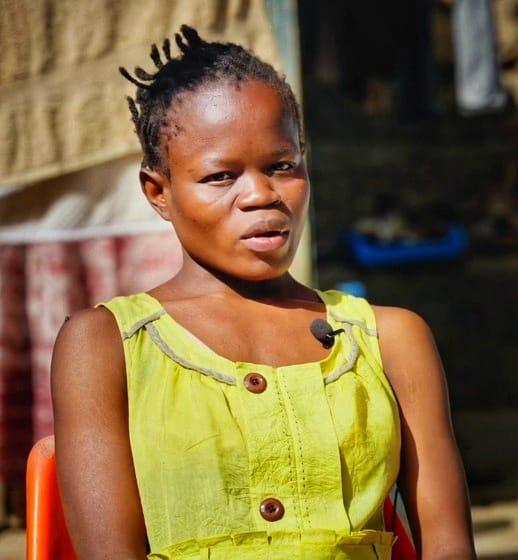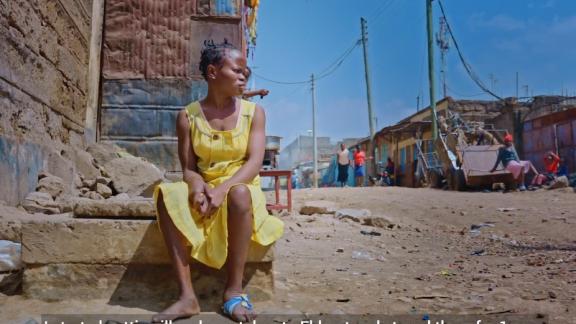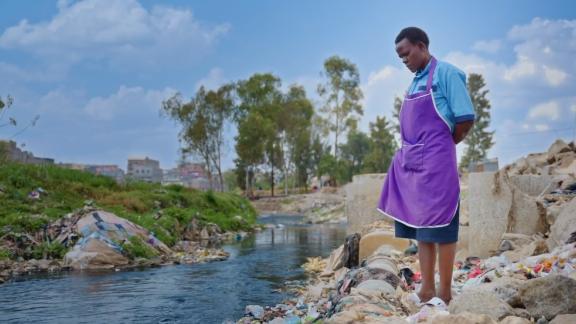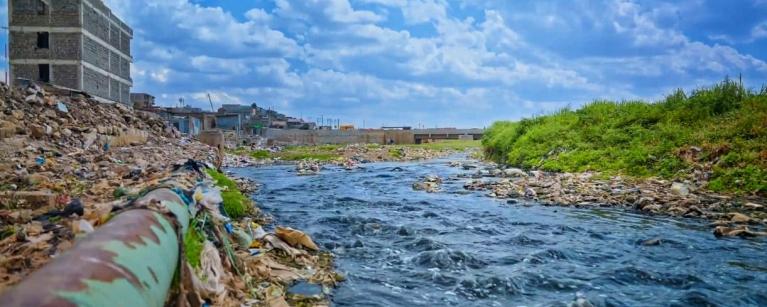Between March and May 2024, Kenya experienced heavy rains and subsequent flooding which displaced thousands of families and claimed lives. According to the National Disasters Operations Centre, 291 people lost their lives and 55,676 families displaced. While the devastation caused by the prolonged rainy season was felt across the country, Nairobi’s informal settlements were among the hardest hit with the floods overpowering the already poor drainage infrastructure, wrecking unimaginable havoc in their wake.
Elizabeth and Gladys live in Nairobi’s Soweto area and are among the scores of mothers whose life changed as they knew it, following the heavy rainfall that stretched well into the month of May. With no assistance from a partner or other family members, Elizabeth and Gladys bear the brunt of fending for themselves and their children which according to them, has become a source of stress, every day.
''The rain started in March, and by April, our area started flooding. It is not until the end of May that we were able to move out of this area. The flood water mixed with sewage, making it worse to walk in.'' says Elizabeth.

Elizabeth
“I have lived in Muoroto for two years. The house we lived in before moving to where we are now, had a leaking roof and with increased rain, the house started flooding with run-off water, living became harder for me because I have a small child. 1year old. We could not sleep while it rained outside, so I would stay awake until the rain stops so that I can mop the house and sleep afterwards. A well-wisher offered to pay rent of KSh. 2,300($18) for us in May and this enabled us to move.”
Elizabeth Akinyi, 23, is a person living with disability. She was admitted at Eldoret hospital for one and a half years starting 2012 after suffering a stroke which impaired her legs. She was in a wheelchair when she got discharged in 2014 and later transitioned to crutches which would make her chest hurt after walking with them over long hours. She had to stop using them. While she can walk around the house and neighbourhood for short periods of time, she relies on assistance from her neighbours if she is to cover longer distances.
“As I am now, I cannot leave the house every day to go find some work. My movement depends on the person I live with, because I need assistance to walk and even take care of my child. If my partner or neighbours cannot help, then I am unable to do much for myself or my family. During the floods, I went to the Usikimye office to tell them about my situation and they visited my house. They brought me food, a mattress and blankets. If I could get someone to help me start a business, I would like to sell clothes, or have a general shop and this way , I can earn money to support myself and my daughter.”

Elizabeth outside her house in Soweto, Nairobi.
Between an abusive partner of three years who regards her as a burden because of her disability and a stepmother unwilling to support Elizabeth in any way, the care for Elizabeth and her child is fully her responsibility and as it is, it has been quite overwhelming. She can only rely on the kindness of her neighbours and strangers for sustenance, until she finds a way to make her own income. “I have to encourage myself every day because I am all I have”, says Elizabeth.
Gladys
For Gladys, the 37-year-old mother of seven and a grandmather of two children, and who has lived in Riverbank for 10 years now - the March-May downpour and floods completely changed her life and that of her family.
Gladys lived in a house she built on her piece of land in Riverbank - a section of Seweto, long the Ngong River. When it started raining, she was not ready for the events that followed.
“It has been raining, all these years I have lived here, but not once did I imagine my house would one day be submerged. The day before we decided to leave our home, it started raining at midnight and by 5 am, water had made it into the house and my children and I could not leave, nor save anything. Three men came, broke the door, and led my children and I to safety,” she recalls.
Soon after, the house was demolished by the government on the premise of being on riparian land. The world got darker for Gladys. With no partner to share in the responsibility of caring for the family, she had to find a way to put a roof over their heads, food on the table and still take the children to school. In the frantic search for a house, not many were willing to accommodate her and her family. Luckily, Gladys met a lady willing to give her a room in a house she shared with her own children. She would only be required to pay KSh.2000 rent and so she took it. Gladys received two mattresses and four blankets from Usikimye
“I got a job at a nearby school, and I work from 8 am to 4pm every day. They pay me Ksh.4,000 ($31) per month. Half of this I use to pay rent and the other half for food and buying water. It is not enough. On some days, we rely on our host for food too and if there is none, we all sleep hungry. Living in someone’s house yet I had my own before the floods where I did not have to pay rent or buy water for 10 years is very hard for me and some days get stressful.”

Gladys, at the bank of Ngong River in Soweto, Nairobi.
Apart from the loss of livelihoods and the loss of life, there is always an impact on the mental health of the people affected. Unpaid care and domestic work is often overlooked yet it is significantly present and impacts women, more so during disasters and humanitarian crises. Usikimye, an Oxfam project implementing partner has been in the frontline to respond to the special needs of the vulnerable women and girls affected by floods and also survivors of gender-based violence by providing psychosocial support and medical referrals.
It is imperative to remain cognizant of the increased responsibility on women especially in times of crisis and where possible, redistribute care work. For instance, men and boys can support in undertaking chores, ensuring that women and girls do not have to do everything in the household.
